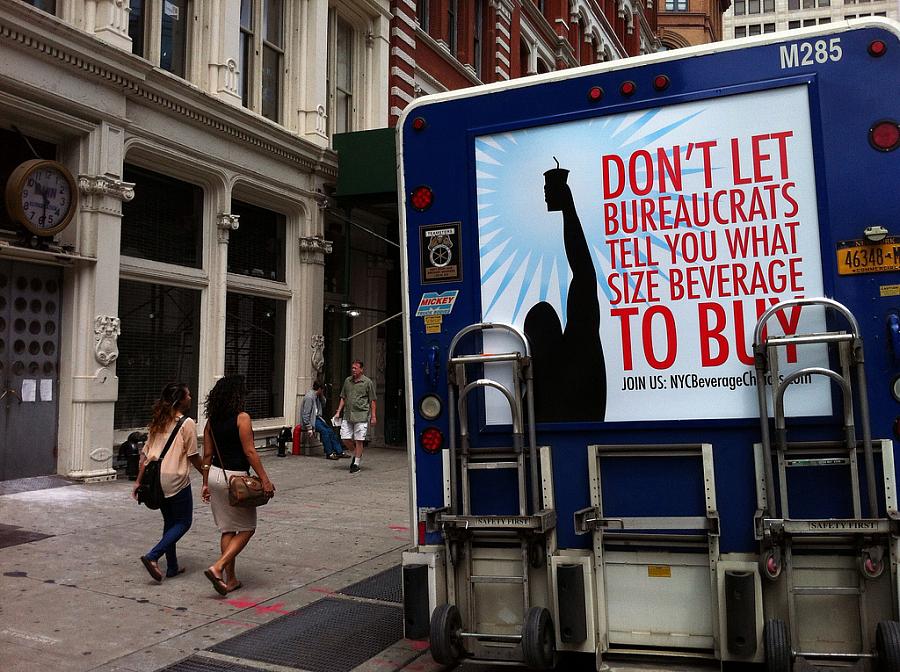Balanced Diet: Rethinking the debate on regulating junk food

Critics of food restrictions often frame the debate in terms of freedom of choice.
Can we eat our way to a healthier planet?
That was the central question being asked by about 500 of the world’s smartest thinkers in science, business, and politics gathered in Sweden this week for the EAT Stockholm Food Forum. Bill Clinton had ideas. So did Dr. Margaret Chan, head of the World Health Organization. So did South Central Los Angeles clothing-designer-turned-urban-gardener Ron Finley.
The answers spanned from so practical you can’t believe it’s not already happening to so out there you need a physics degree to understand them. I will explore some of the things I learned in future posts. To start, I want to talk about the concept of choice.
When people talk about how unhealthy food has become, they often bring up the example of tobacco. And that leads to taxes, restrictions and bans. Smoking tobacco continues to kill millions every year around the world, but it is also the area where public health efforts have had an enormous impact. A study in JAMA in January estimated that 8 million lives had been saved in the U.S. since the surgeon general first issued a report about tobacco’s dangers in 1964.
That report was followed by warning levels of increasing size and fear factor. It was followed by taxes to make smoking more costly and to recoup some of the economic damages the habit delivered to health systems. It was followed by lawsuits that resulted in billion-dollar settlements intended to fund public health campaigns – although the spending didn’t always go that way. And it was followed by smoking bans that are now so common that it often seems surprising when you walk into a building and find an ashtray.
The successes in combatting excess weight are few and far between. A study in The Lancet showed this week that not a single country was able to significantly reduce the rate of obesity between 1980 and 2013. (My employer, the Institute for Health Metrics and Evaluation at the University of Washington led the consortium of researchers internationally that produced the study.)
In Greece, for example, the percentage of adults who were overweight and obese rose from 1980 with men at 56% and women at 43% to 2013, with men at 71% and women at 51%.
Why not try with food what we tried with tobacco? Bad food – high in salt, sugar, and calories – has not been met with this same effort. When countries have tried the tobacco approach, they have been met with the argument that people should have the freedom to choose whatever they want to eat.
Jonas Gahr Støre was executive director at the World Health Organization and the minister of health of Norway. He is now a member of Parliament in that country.
“In my country, there has been a lot of debate about individual choice, so I went to see Mayor Bloomberg to hear from him what had been the driver of his campaign in the land of freedoms,” Støre told the crowd in Stockholm.
We all saw what happened when Mayor Michael Bloomberg attempted to limit the size of soda people could buy in New York City. But despite that failed effort, he led many other successful efforts to drive out unhealthy foods and ingredients. He banned trans fats, for one. And he forced chain restaurants to list calorie counts on their menus.
See Also: Editorial shorthand, like 'soda ban,' fails our debates on public health
“You had very drastic measures. Doesn’t this infringe on freedom of choice?” Støre asked him. In Støre’s retelling, Bloomberg seemed perplexed and said, “How can you talk about freedom of choice if you don’t have the foundation to make a free choice?”
Richard Horton, the editor of The Lancet, was even more blunt. He told the crowd:
We are often presented with this dichotomy between freedom and regulation. We have to say that’s a totally false dichotomy. What is the freedom we’re talking about here? The freedom not to have full information about the choices you make in your life? The freedom to have multinational food corporations putting health at the bottom of their list of priorities and putting profit above health? The freedom to live in an environment where you will find yourself making choices that will curtail the number of years of healthy life lived? Those aren’t freedoms. Those are restrictions. We are here to maximize the facility of societies to tackle the forces that curtail our freedoms.
But it may take time before people see the world that way. They see items lined up on a store shelf or on a restaurant menu as their real choices. A good friend of mine saw some of my tweets from the conference and wrote me that he was concerned taking bad food out of people’s hands would limit their freedom. He’s one of the smartest people I know, and so I don’t take it lightly when someone as thoughtful as him doubts the wisdom of limiting food choices.
That’s why, as Støre said, politicians have a different challenge with food than they did with tobacco. “Politicians can’t simply regulate with food,” he said. “They have to find the right combination of leading and convincing and bringing people on board. By doing that, they can eventually create a movement of change.”
Photo by Daniel Latorre via Flickr.

